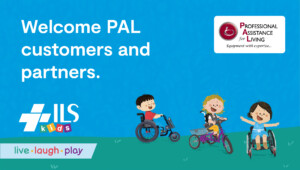Now that you’ve learned a bit about COPD, what can you do next? If you think that you or someone you know could be affected by COPD, the first step is to contact your GP. Your GP will run a series of breathing and pulmonary function tests to determine whether or not you have COPD. As well as being in regular contact with your GP, your COPD journey will lead you to many healthcare professionals in a range of settings and faculties. Many of these will come as referrals from your GP, but if you think there is type of specialist care that you could benefit from to which you have not been referred, such as physiotherapy, psychiatry, dietetics, a breathing association or any other specialist care, discuss this with your doctor.
Your Healthcare Team
It is important to assemble a group of healthcare professionals who you feel comfortable with and who can support you through your journey with COPD. These people will be able to cater for your needs specifically and will be well acquainted with your symptoms and circumstances. These professionals will make up what is called your multi-disciplinary team (MDT), and they may meet regularly to discuss your care. In order to get the best out of your team, Lung Foundation Australia suggests that you need effective communication which incorporates:
- Feeling comfortable discussing symptoms and concerns with your healthcare team
- Feeling that you are receiving adequate information
- Open dialogue
- Making decisions in partnership with your healthcare team
If you are not comfortable with a member of your team, or feel you are not receiving adequate care, you can ask for a second opinion or to change healthcare professionals.
Healthcare Settings
The healthcare settings in which you meet with the members of your MDT are often referred to in three distinct groups as the primary setting, the allied health setting and the hospital setting. The primary setting incorporates your GP, pharmacist, nurse, and those involved in delivering community-based care. These are the professionals you will meet with most frequently to discuss your progress and will be your first port of call for any enquiries. The allied health setting includes those who care for you in a hospital, community centre, or private practice, and have training in a specific body system or function.
Some of the professionals who work in this setting are physiotherapists, pulmonologists/respiratory specialists, speech pathologists, smoking cessation counsellors, dieticians and nutritionists, among others. Each of these professionals has highly specialised skills which, when assembled, will complement the rest of your team to work toward improved health. The third setting, the hospital setting, includes all of the people who you will visit in a hospital. This might include, but is not limited to, respiratory physicians, respiratory nurses, medical oncologists, radiation oncologist surgeons, palliative care physicians, and nurses. As you progress through your COPD journey, you will find yourself meeting with a combination (but probably not all) of the above professionals to discuss your health. Again, if you feel that there is a specialist who might be able to improve your condition to whom you have not been referred, ask your doctor for a referral.
You Are Not Alone
You are not alone. Medical help is available to you if you seek it, which you are encouraged to do as soon as you recognise symptoms of COPD. Making sure that all of your COPD needs are attended to will vastly improve your health and quality of life, so it is highly recommended that you seek medical attention for your symptoms as soon as possible, whether you think they might be symptoms of COPD or otherwise. Your MDT together should be able to deal with any or all of your COPD medical needs, from physical ailments to mental health concerns. For social or financial concerns related to your health, it is advisable to contact your nearest Centrelink office or visit humanservices.gov.au.









